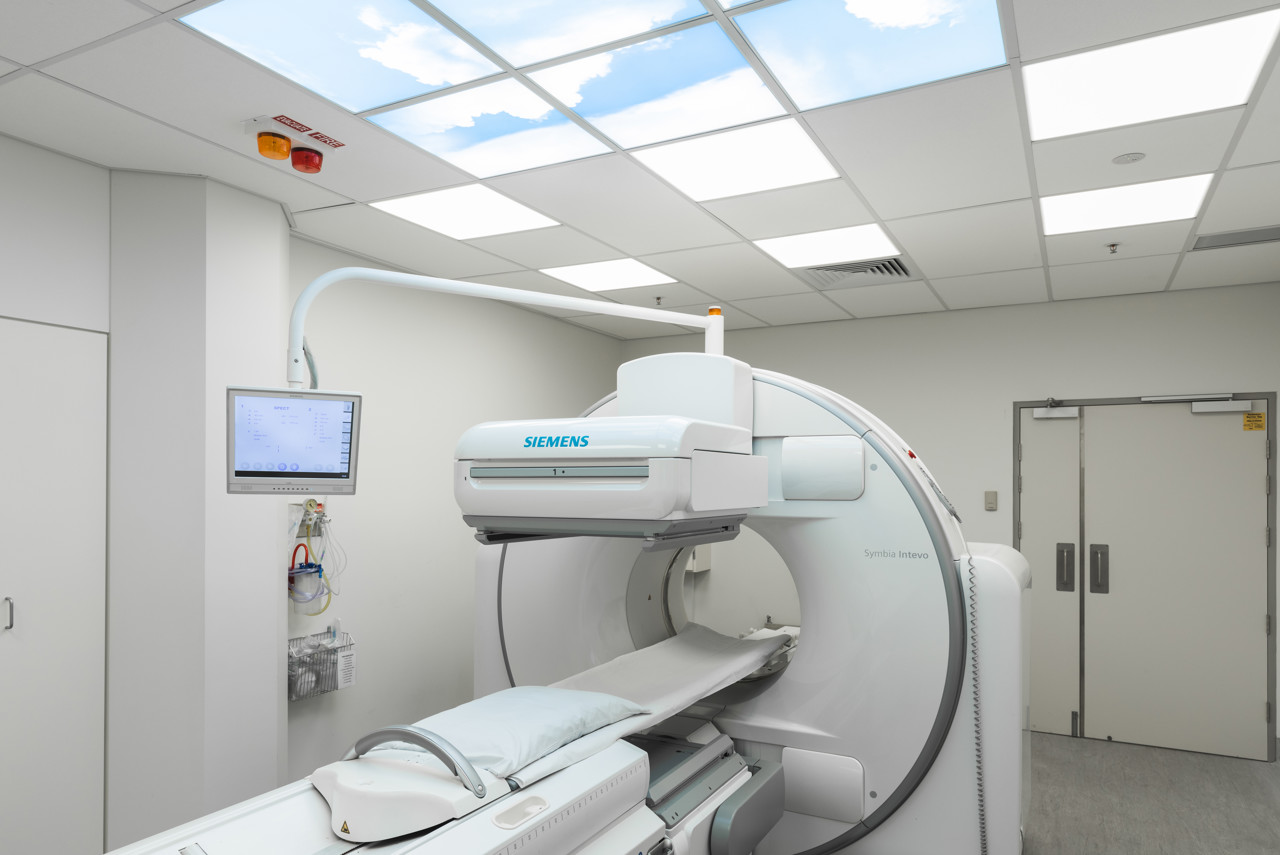Myocardial Perfusion Scan FAQs
-
Our team will provide specific instructions at the time of booking, and these should be followed carefully.
To ensure the highest quality and most accurate imaging, certain preparations are required for this scan:
- You will need to stop consuming anything containing caffeine 24 hours prior to the scan.
- You will need to fast for a minimum of 6 hours.
- A staff member will contact you to determine if you need to stop any medications prior to the scan.
- If you're asked to cease any medications, please check with your doctor that it is okay to do so.
If there is any chance you might be pregnant or if you are breastfeeding, please inform us at the time of booking.
-
- Your technologist will explain exactly what will happen during your procedure. It may vary slightly from what we describe below, so don’t worry if this is the case; you’ll always be in very good hands.
- On arrival, please present to reception. You will have your details taken, and we will confirm that you have stopped any required medications, caffeine, and have been fasting (you may drink only water). Please bring a list of any medications you take with you.
- We will insert an intravenous (IV) line into your arm. This will be used to administer a radioactive tracer. Allergic reactions to the tracer are rare.
- After the tracer is injected, there will be a short waiting period (10-30 minutes). This allows the tracer to circulate through your bloodstream and be absorbed by the heart muscle.
- Once absorbed, you will be asked to lie on the SPECT/CT scanner bed.
- You will then have the first set of scans. This first scan will show how your heart looks in a resting state.
- The bed will move into the hole of the scanner (a large, doughnut-shaped machine), aligning you to the correct position. The bed will remain still as the scanner rotates around you. The gamma camera will start capturing images of your heart.
- After this scan, you will undergo a stress test. A nurse will attach ECG patches to your chest; these are sticky “dots” with leads. ECG patches help us record your heart rhythm.
- There are two types of stress tests; the Doctor performing the test will decide which method is suitable. The stress test will either involve medication that mimics the effects of exercise on the heart, or you will exercise on a treadmill or stationary bike. If physically exercising, you will be exercising to your individual capacity.
- Once you reach an appropriate stress level, you will receive a second injection of tracer. This will capture a ‘snapshot’ of the blood supply to your heart at that moment.
- After the second tracer is injected, there will be another waiting period for the tracer to circulate and be absorbed. At this point, you may be offered something to eat and drink.
- You will then have a second scan. This scan will reveal what the blood supply looks like under stress.
- After the second scan, the technologist will review the images. The IV and ECG cables will be removed, and you will be able to leave.
-
A Myocardial Perfusion Scan is a multi-stage process that can take up to 5 hours.
-
Queensland X-Ray has market-leading Nuclear Medicine and specialised SPECT/CT equipment.
Myocardial Perfusion Scans are performed by a Nuclear Medicine Technologist; the images taken will be reviewed by a specialist who reports on the findings.
The images and report will be sent to your referring doctor, who will explain the findings to you.
How much will it cost?
Fees for radiology procedures will vary depending on a variety of factors. We will advise you about the cost of your service at the time of booking but if you do have any questions, contact us and one of our team will be happy to help with your query. You can read more about our billing information here.
How do I access my images?
At Queensland X-Ray, we provide our patients with their images and results online. To access your images and results, you’ll need to register for an account when you visit one of our practices. If you’ve already registered, you can access the Patient Portal here.

